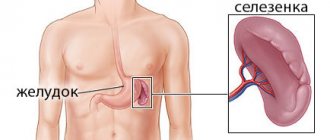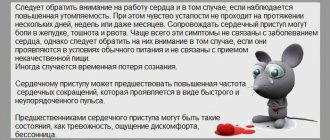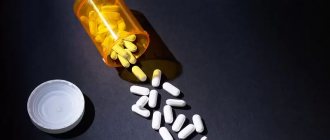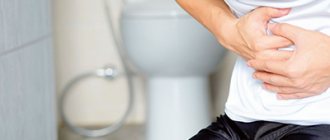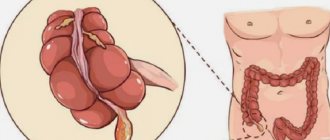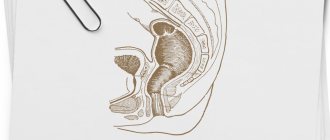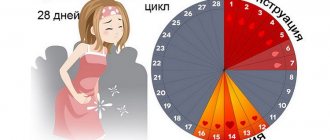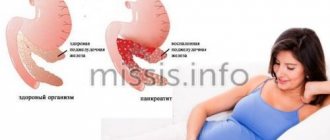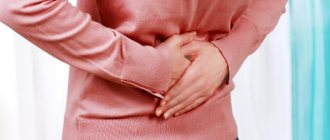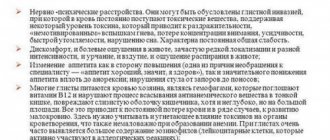The environmental situation in the world is deteriorating every year. For this and other reasons, diseases with accompanying symptoms develop. Hiccups are especially common. It occurs due to many factors.
When smoking, although quite rarely, hiccups sometimes occur. Occurs during smoking, sometimes some time after it. A person poisons the body with harmful compounds, health deteriorates, and signs of poisoning begin to appear.
When adverse factors affect the respiratory system, you begin to hiccup. The reasons are varied - hypothermia, overeating, nervous tension. The main influence is exerted by intoxication of the body resulting from cigarettes and alcoholic beverages.
In addition to non-physiological hiccups, pathological ones are noted. Occurs during diseases of the central nervous system, with meningitis, encephalitis, with the development of malignant and benign tumors. Sometimes it occurs in diseases of the gastrointestinal tract as a concomitant manifestation (IBS, esophagitis, gastroduodenitis, ulcers, etc.). Hiccups arise from air entering the stomach and strongly stretching the walls, which is why the familiar long-lasting sound is born in the diaphragm.
Causes of hiccups while smoking?
When such a symptom occurs, a natural question arises in a person: why do you hiccup when you smoke? Scientists from different countries have been searching for an answer for a long time. By comparing normal hiccups with those from cigarettes, researchers have found the reason why a person hiccups while smoking.
The cause of an ordinary attack is physiology ; when smoking, a similar reaction occurs due to intoxication, that is, the origin is a non-physiological condition.
Usually, hiccups accompany smokers with a long history of using tobacco products.
In some cases, the cause is a strong difference in temperature. Sufficiently hot tobacco smoke, entering the lungs, causes irritation, provoking contraction of the diaphragm and causing a severe cough. It occurs especially often when smoking outdoors in the cold season.
Please note that hiccups from cigarettes are not a normal condition of the body.
In some cases, an attack may be a symptom of the following diseases:
- irritable stomach syndrome;
- infectious diseases: encephalitis, meningitis;
- tumor development in the gastrointestinal tract;
- pancreatitis;
- disorders of the central nervous system.
To get an individual reason, make an appointment with a specialist. The doctor will carefully examine the person, give his own recommendations and make an accurate diagnosis and prescribe treatment.
Why are smoker's hiccups dangerous?
More often, hiccups are only a concomitant symptom of another disease. Smoking worsens gastrointestinal, cardiovascular and pulmonary diseases. The biliary tract narrows, which affects neighboring organs (liver, kidneys, urinary, gallbladder). We need to call a spade a spade – smoking, first of all, poisons the body!
The cigarette contains a number of chemical compounds (400 items). The most common, harmful to the body:
- Nicotine. The active substance of any cigarette. Slows down the supply of nerve impulses. It immediately enters the bloodstream, causing addiction. A heavy smoker receives an increased dose of the substance, which negatively affects blood pressure and blood vessels. There is a risk of stroke.
The blood is saturated with poisons in the lungs
- Resin. The particles settle in the lungs, blackening them. Increased risk of pulmonary diseases, including tuberculosis. Carbon accumulates.
- Heavy metals (nickel, lead, cadmium). Active carcinogens and poisons. They poison the body as a whole.
- Ammonia. A substance used to clean up contaminants.
- Benzene. Carcinogen that causes cancer (leukemia).
- Formaldehyde. A poison used to preserve corpses. Causes diseases of the gastrointestinal tract.
- Arsenic. Used as a poison for rats.
- Carbon monoxide. Reduces oxygen levels in the blood, causing lung diseases.
- Acetone. The fair sex uses it to remove nail polish.
- Styrene The toxicity of the substance causes cataracts of the respiratory tract, changes the composition of the blood, and irritates the mucous membranes.
The remaining elements that make up a cigarette also have a detrimental effect on the body. Many cause cancer. The best solution is to quit smoking. If difficulties arise, it is necessary to undergo examinations and reduce tobacco consumption.
Why does a person hiccup after smoking?
Often, hiccups occur immediately after smoking; it may also be accompanied by chest pain.
This reaction of the body is caused by the following reasons:
- Expansion of the walls of the stomach with air, which can be removed from the body only by contracting the diaphragm;
- The effects of chemicals contained in cigarettes on the vagus nerve;
- The involuntary impulse from the smell of cigarettes affects the phrenic nerves, leading to their contraction.
2 cigarettes at a time , then the cause of hiccups can be considered intoxication of the body.
Persistent and prolonged hiccups after cigarettes may be a sign of pneumonia.
Should I give up the habit or not?
A heavy smoker voluntarily and consciously exposes his health to severe trials. The quality of life begins to deteriorate over time. Nicotine addiction appears, after smoking, blood pressure rises, cough and shortness of breath appear. It becomes more difficult to climb the floor, as muscle atrophy appears.
Hiccups when smoking are the lesser of evils. It indicates intoxication of the body by the products of burning cigarettes. This is the first sign of deteriorating health. After quitting smoking, the body will begin to cleanse itself. It will take from 3 months to 5-6 years until toxic compounds are completely eliminated (depending on the length of time of the smoker). Medications and vitamin-mineral supplements will help support cleansing.
From cigarettes, a person acquires chronic forms of diseases, immunity is reduced, and diseases are acquired quickly. The worst are cardiovascular, bronchopulmonary and blood diseases. Because of the nicotine habit, people lose limbs, become disabled, and lose their lives.
If hiccups appear during or after smoking, you will have to think about quitting the bad habit. You need to throw it quickly! Slowing down will lead to greater intoxication of the body, which means it will be more difficult to break the habit. Medicine does not stand still; quitting a harmful activity is now easy. There are many options: from abrupt refusal to replacing cigarettes with nicotine patches, chewing gum, and sprays. We offer a range of electronic cigarettes.
The main thing in the fight against a bad habit is willpower, the desire to live a full, rich life. It is important to feel the support of close relatives and friends. Successfully breaking the habit will allow you to enjoy life longer.
If hiccups occur due to smoking e. cigarettes, vape, iQOS, hookah?
Electronic cigarettes, vaping, iQOS and other modern smoking devices can also cause hiccups. Despite the claims of manufacturers that electronic cigarettes cause less harm to the body, the principle of their effects remains similar to smoking a regular cigarette.
Therefore, the main reasons are:
- temperature difference;
- intoxication;
- allergic reaction to filler or smoking liquid;
- retention of tobacco smoke in the stomach.
The hookah stands apart from all the above devices. Hookah is a traditional oriental smoking product.
Since hookah filters are only able to purify tobacco smoke from impurities by only 40% , intoxication should be considered the most common cause.
Provoking factors
The following conditions may increase the occurrence of unpleasant symptoms:
- reflux esophagitis;
- irritable bowel syndrome;
- the presence of parasites in the body;
- diseases of the biliary tract;
- pancreatitis;
- stomach ulcer.
Stomach pathologies are a common cause of hiccups. Most smokers suffer from them. The entry of gastric juice into the esophagus provokes a burn and affects the nerve endings - attacks of hiccups are no longer uncommon.
Hiccups after smoking appear for a short period of time; as a rule, no measures need to be taken. It happens that hiccups appear only at the moment of inhaling, and if you put out the cigarette, then the attack will pass.
How to get rid of “tobacco” hiccups?
It is believed that the attack goes away on its own within 10-20 minutes . But if it does not stop, then you need to turn to proven means .
Video taken from channel: Vladimir Yachmennikov
Currently, not only special gymnastics have been developed to relieve contractions of the diaphragm, but also medicinal products and traditional medicine.
Medicines
The use of pills and other medications is a last resort in treating hiccups from smoking. Usually, medications are prescribed by a doctor when hiccups are identified as a symptom of another disease , so it is necessary to carry out treatment extremely carefully.
The main drugs include:
- Phenytoin;
- Diazepam;
- Chlorpromazine;
- Metoclopromide.
The use plan is signed personally after a thorough study of the characteristics of the body.
Before use, consult your doctor.
ethnoscience
Alternative medicine is based on the use of biologically pure components. The only thing that reduces effectiveness is the individual reaction of the body to the components used.
Folk wisdom has accumulated over the years, so the following methods of dealing with hiccups from smoking have been preserved:
- Take some ground pepper and inhale. Thanks to sneezing, excess air will be removed from the body;
- Chew a sour lemon. Citric acid is a strong irritant, so the receptors will switch from the diaphragm to the stomach, due to increased salivation.
- Drink a glass of clean water in small sips.
- Take a plastic bag. Cover their mouth and nose. Breathe into the bag.
Remember that traditional medicine is an addition to the main treatment .
Special exercises
Special exercises that allow you to restore the natural position of the diaphragm and relieve tension have gained popularity:
- Stick out your tongue and pull the tip as hard as possible for 5 seconds. Repeat 5-10 times. The method relaxes the vagus nerve.
- Close your eyes and lightly press your ears with your palms. Take a deep breath and hold your breath for 10 seconds. Exhale, repeat until the attack disappears completely.
- Bend over. Try to stretch your neck when bending over. Clasp your hands behind your back and breathe deeply. Stand up straight and drink a glass of water.
Elimination of an attack
There are different ways to relieve attacks of hiccups; folk advice is often used, but the doctor may also recommend medications. Their use is relevant in cases where attacks are prolonged and recur constantly. In this case, an examination should be carried out and the exact cause of the attack should be identified - perhaps it is a serious pathology.
For hiccups, medications are used whose action is aimed at reducing dopamine and serotonin receptors, as well as antispasmodics and muscle relaxants.
After diagnosis, it becomes clear what provoking factor influenced the occurrence of the attack. As a result, antiviral drugs can be prescribed if the patient's condition is complicated by bronchopulmonary diseases, as well as antihistamines and antibacterial drugs.
The body is a single system and the influence of all possible factors must be taken into account. The trigger for an attack can sometimes be stress or disturbances in the psycho-emotional sphere. In such cases, sedative tablets will help.
Any medications should be taken only as prescribed by a doctor. Possible medications include:
- Finitoin;
- Diazepam;
- Carbamazepine;
- Chlorpromazine;
- Metoclopromide.
Drug therapy is used in extreme cases. As a rule, it is possible to cope with an attack using simpler and more accessible methods.
Of course, the most correct recommendation in this case is to quit smoking. This is one of the most harmful habits that steadily destroys the human body. However, people are looking for simpler solutions. In such cases, the following advice can be given:
- A sufficient amount of fresh air will help stop the attack - you need to leave the smoky room.
- Drink warm water. Water will slightly calm the irritation of the mucous membrane and reduce the concentration of acid.
- Holding your breath is probably the oldest way to get rid of hiccups. To be fair, it can be noted that it does not always help.
- Breathing like a dog. It is necessary to breathe frequently with your tongue hanging out. The purpose of the procedure is to stimulate the posterior pharyngeal region and eliminate irritation from the diaphragm.
- Breathing into the bag. Restriction of oxygen leads to an increase in the level of carbon dioxide in the blood, relieving spasms and muscle excitation.
- You can try to eliminate frequently recurring attacks of hiccups by taking a course of sedative herbs. Valerian, motherwort, and lavender can be used.
- Eat a teaspoon of sugar. Will reduce acidity in the esophagus.
Doctors' advice
Doctors do not remain indifferent, and therefore give their own recommendations.
The tips below are mostly preventive measures to prevent an attack from occurring:
- It is advisable to avoid smoking outdoors during the cold season;
- Do not talk while smoking, as talking increases the amount of air you inhale;
- Do not combine drinking and eating with cigarettes, as this promotes hiccups;
- Do not smoke sitting or lying down , as incorrect positioning affects the diaphragm, causing contraction.
- Try to avoid stress .
- more clean water to remove tobacco combustion products from the body.
Doctors recommend walking more to replenish the lack of oxygen, which also causes hiccups.
Content:
- General information about the substance
- Nicotine overdose: symptoms
- What to do if you overdose on nicotine
- Consequences of overdose abuse
Nicotine is a chemical substance that belongs to the group of alkaloids along with such drugs and poisons derived by man from plants as caffeine, cocaine and quinine. Many of them have a significant effect on the nervous system. Nicotine was first extracted from the tobacco plant Nicotiana tabacum. Nicotine addiction is considered one of the most difficult to overcome. Smokers and tobacco users are at risk of nicotine overdose, which has serious consequences.
Consequences of abuse and overdose
Uncontrolled intake of nicotine in any form is fraught with the appearance of diseases such as:
heart diseases,- hypertension,
- overactive thyroid disease,
- disorders of the liver or kidneys,
- diabetes,
- asthma,
- chronic lung pathologies.
An overdose may cause paralysis of the muscles that control breathing or the heart, leading to respiratory arrest and coma. The prognosis depends on the dose taken, age, individual characteristics of the patient, the presence of severe concomitant diseases, and how long the nicotine overdose lasted.
A lethal dose for humans is considered to be 0.5 - 1 milligram of a substance per kilogram of weight . From one cigarette smoked, one milligram enters the body.
Nicotine overdose is a serious condition and should not be taken lightly. Timely intervention often saves lives.
What to do if you overdose on nicotine
As an emergency:
Provide the victim with a horizontal position. The best position is on your side. It will help prevent vomit from entering the trachea.- Call an ambulance.
- Unbutton the collar of the patient's clothing, loosen the belt, and provide a flow of fresh air.
- If the person is conscious, give him a weak pink solution of potassium permanganate to drink. Be prepared for it to induce vomiting.
- After cleaning the stomach, give activated carbon or any other sorbent available.
- Talk to the patient, do not let him lose consciousness.
- Meet the ambulance crew, tell the doctor about the first aid provided for a nicotine overdose and the dose that caused the poisoning.
The intensity of further measures depends on the severity of the patient's condition. For mild poisoning, treatment can be carried out at home or on an outpatient basis. If the doctor diagnoses life-threatening signs, the patient is hospitalized.
